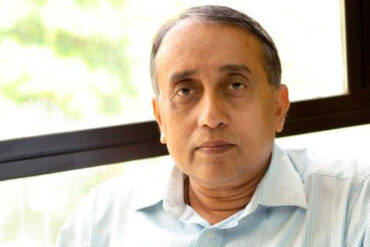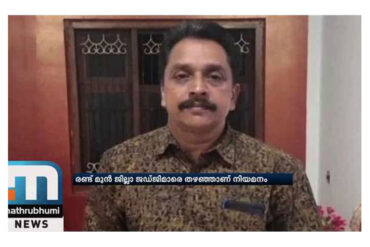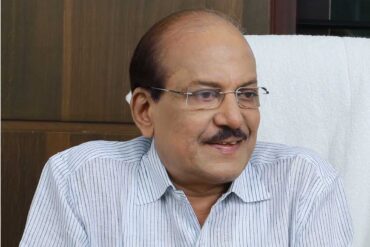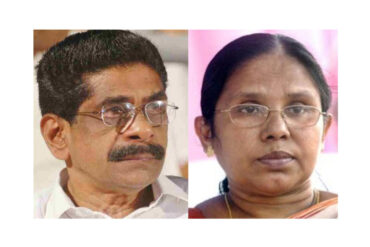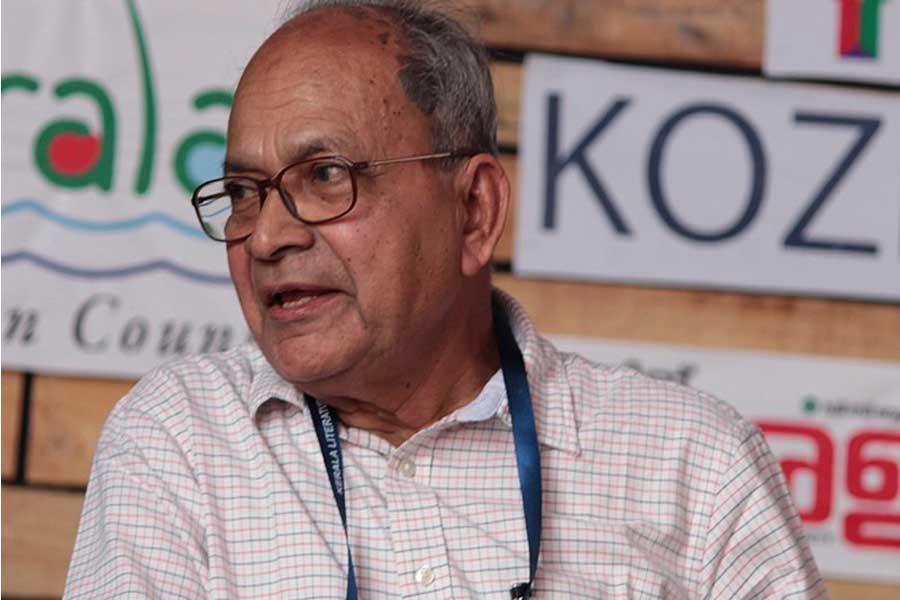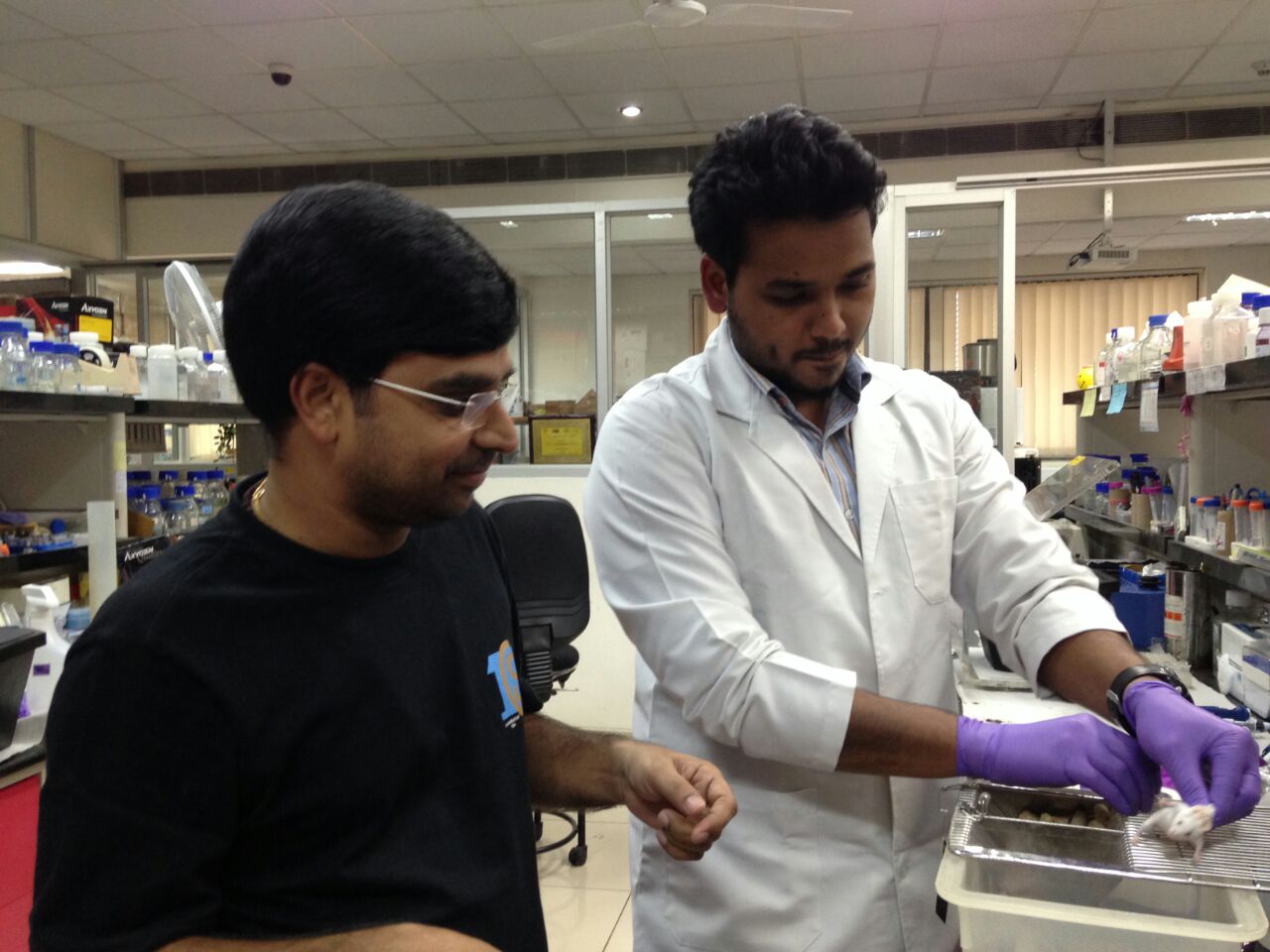From the ruby and coral of Manipravalam poetry to the pastoral romances of Changampuzha Krishna Pillai, Malayalis have always been dyed-in-the-wool romantics. But somewhere down the line in modernity, the sickly sweet syrup of love metamorphosed into the pungent vinegar of despair and hate. None of our contemporary Malayalam writers have succeeded in breaking the romantic mould and charting out this transformation, as much as Anand, winner of this year’s Ezhuthachan Award.
Much before the emergence of intersectional activism, Anand in his novel Vyasa and Vighneswara threaded together the subaltern and feminine points of view in a stupendous feat of epistemological synthesis. This official recognition, accorded now with the bestowal of the state-sponsored Ezhuthachan Award instituted in the name of the founder of the Malayalam language, has been long overdue in his case.
Even more than O V Vijayan, Paul Zachariah and M Mukundan, his fellow compatriots from their glamorous exile in Delhi, Anand succeeded in tapping into the mother lode of India’s historical past. In Govardhan’s Travels he brilliantly channelized the medieval energies of the Hindi writer Bharatendu Harishchandra’s Andher Nagari, Chaupat Raja into an extraordinary narrative of historiographic metafiction.
Like that other auteur, Jean Luc Godard in cinema, Anand is an essayist par excellence, although his chosen craft is fiction. Despite the presence of stalwarts in the field of historical studies such as MGS Narayanan, Rajan Gurukkal, Kesavan Veluthat and KN Ganesh, Anand remains the exemplar of the historian’s craft in Malayalam. (It is interesting to note that none of these Kerala historians would ever be considered for this prestigious literary prize, and nor would they covet it, despite the precedent of the historian Mommsen winning the literature Nobel.)
Anand’s oeuvre proves Hayden White’s dictum that history has the structure of a literary narrative. History remains a narrative just like literature. What is literal at one point of time might later be interpreted figuratively, and vice versa. Literature and history constitute not two water-tight compartments, but one seamless continuum, segueing into each other.
Despite being a civil engineer and technocrat, Anand has always been fascinated by the dystopic aspects of ecological catastrophe. Anand, on his part, narrates history not in dynastic eras, but in geological eons. (Another engineering graduate from Kerala, Murali Thummarukkudy, from his lofty perch in Geneva, Switzerland, as Chief of Disaster Risk Reduction in the UN Environment Programme, has emerged as a renaissance man of sorts in recent times, winning the Kerala Sahitya Akademi Award for his work. Thummarukkudy, albeit indirectly, owes Anand for his ecological insights and vision)
Even before B Rajeevan, another notable thinker of our times who has pointed out the sidelining of spatiality by traditional Marxism with its overwhelming fascination for dialectical temporality, Anand had problematized the question of space in his Alkoottam as well as Marubhoomikal Undakunnathu. Kudankulam, Jaitapur, Fukushima and umpteen other nuclear regimes find their resonances in Marubhumikal Undakunnathu. Anand’s oeuvre also feels quite at home with cutting edge concepts of contemporary continental philosophy like Object Oriented Ontology.
A protégé of the humanist writer M Govindan, Anand has always been wary of the pomposity of spurious spirituality and religion. Like the great V S Naipaul, whom he admires, Anand has always pointed out the banality behind the emancipatory pretensions of political Islam. He has consistently called out the historical impasse constituted by medieval ideology. This has made Anand the bête noir of evangelical Salafists who categorize him as ‘someone stuck in time’. He has always been sceptical of the enlightenment claims of Semitic Eurocentrism which exalted the religion, race, culture and environment of Europe above the rest of humanity.
Anand was often ahead of his times, leading his literary cohort with environmental ethos and prescient prognostication of the anthropocene. Anand drew inspiration from the radical humanism of M N Roy who himself was hobnobbing with the likes of Vladimir Lenin. Anand’s activism and his collaboration with the legendary Mahasweta Devi added dimensions to his radical humanist outlook. His espousal of civil society activism was misunderstood by many. He bravely called out the historical wrongs committed by religion and so-called civilization, earning few friends in the process. Anand would concur with Walter Benjamin, another Cassandra-like seer of messianic doom, that ‘there is no document of civilization that is not at the same time a document of barbarism’.
Anand in his novel Alkoottam sketched out not only the reality of urban alienation, but also the coming era of the anthropocene, much before it was a rationalist twinkle in the eyes of the likes of C Ravichandran. Homo sapiens have become so successful a species that their burgeoning quantity has led to a qualitative change as well. Anand adumbrated the demise of humanity as we know it, even before the contemporary Western intellectual superstars like Yuval Noah Harari. Without resorting to the gimmicks of Latin American magical realism, Anand in a cold, clinical, even mathematical prose delineated the contradictions of our time and their temporal as well as spatial coordinates.
The current session of the Kerala history Congress is to be inaugurated by historian Dipesh Chakrabarty on November 3. But even before Chakrabarty, Anand had in his books laid out the issues of ecology and of ‘provincializing Europe’.
It was Marx who said that “men make their own history, but they do not make it as they please; they do not make it under self-selected circumstances, but under circumstances existing already, given and transmitted from the past. The tradition of all dead generations weighs like a nightmare on the brains of the living”. A Malayali may not win the Nobel for yet another century or so, because Kerala lacks the circumstances, historical heft and enlightened urban ethos of Bengal. But the literary ethos and sensibility of Malayalis find their vindication in the aberrant genius of someone like Anand.
Awards are always political, even more so when they claim to be otherwise. Anand as the winner of the Ezhuthachan award is certainly a political choice. With the Babri verdict hanging in balance and Kerala itself staring at the very real possibility of ecological doom, this choice for the Ezhuthachan Award is an eloquent one. But more than that, it is a marker of the crucial juncture in the history of the anthropocene that Malayalis find themselves in.
Away from the glaring eyes of media, never pandering to the crowd, Anand has always maintained his intellectual integrity and slow-burning intensity. His eloquent grasp over the zeitgeist of the times makes him arguably the greatest living writer of our language.


